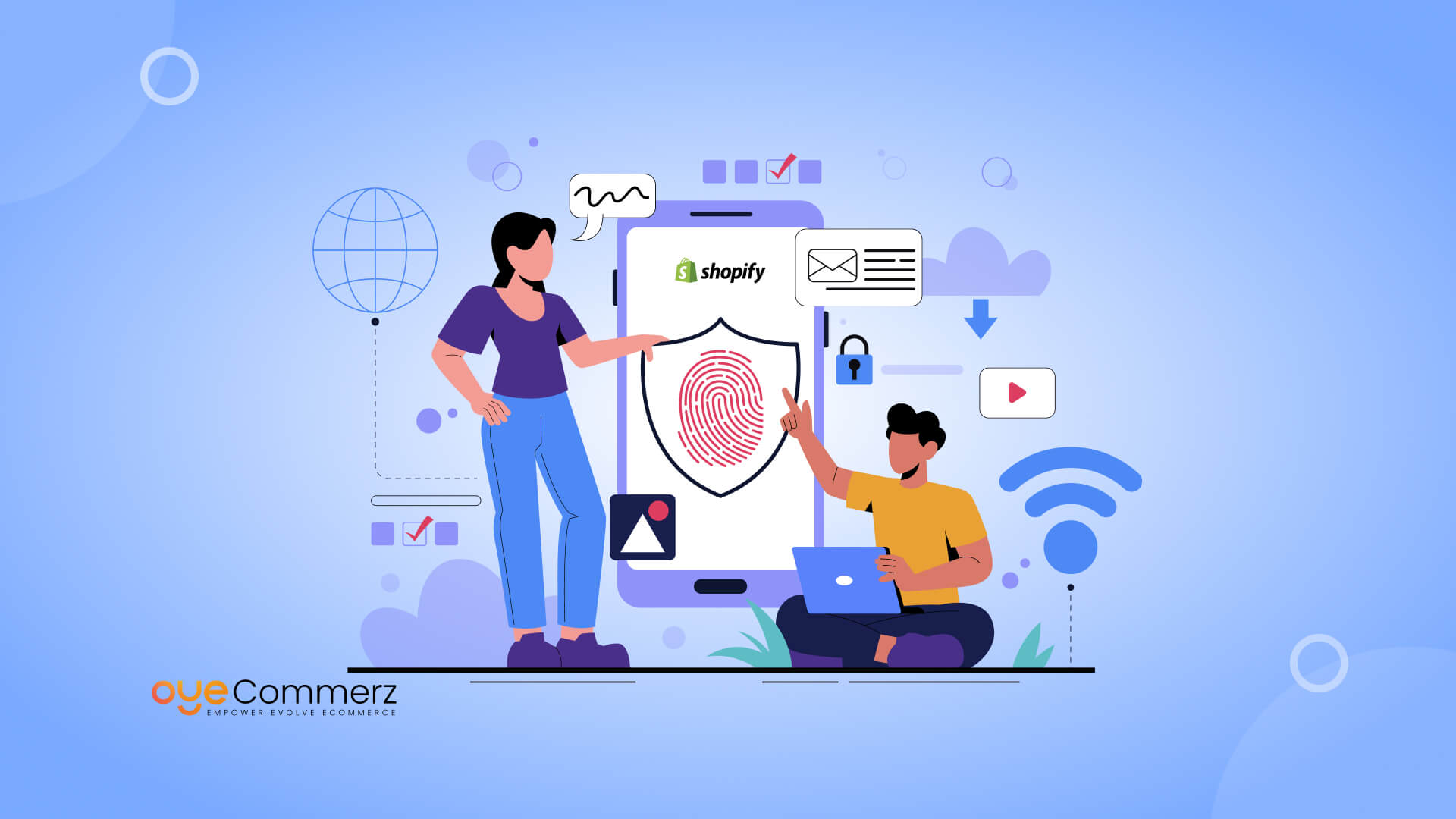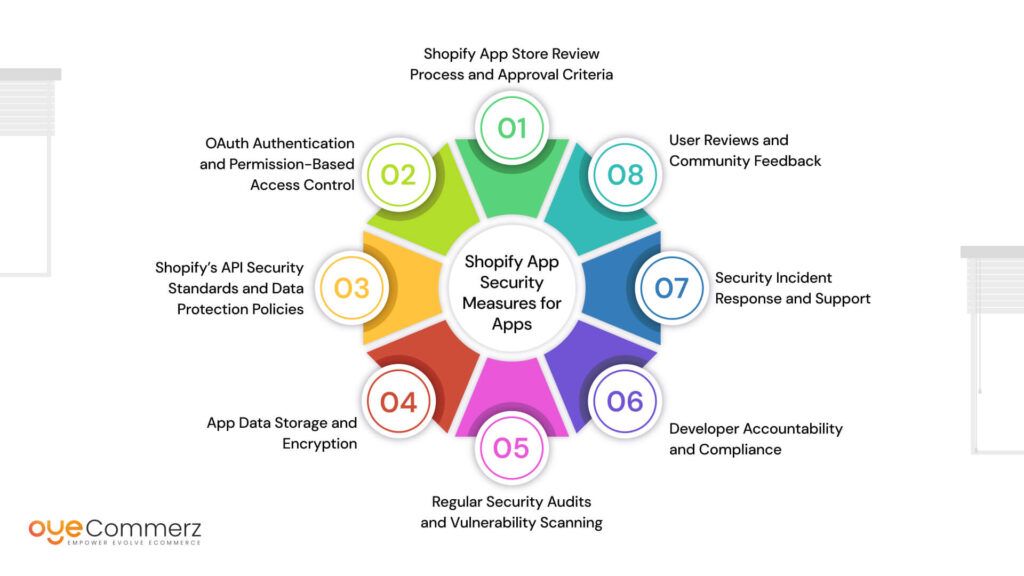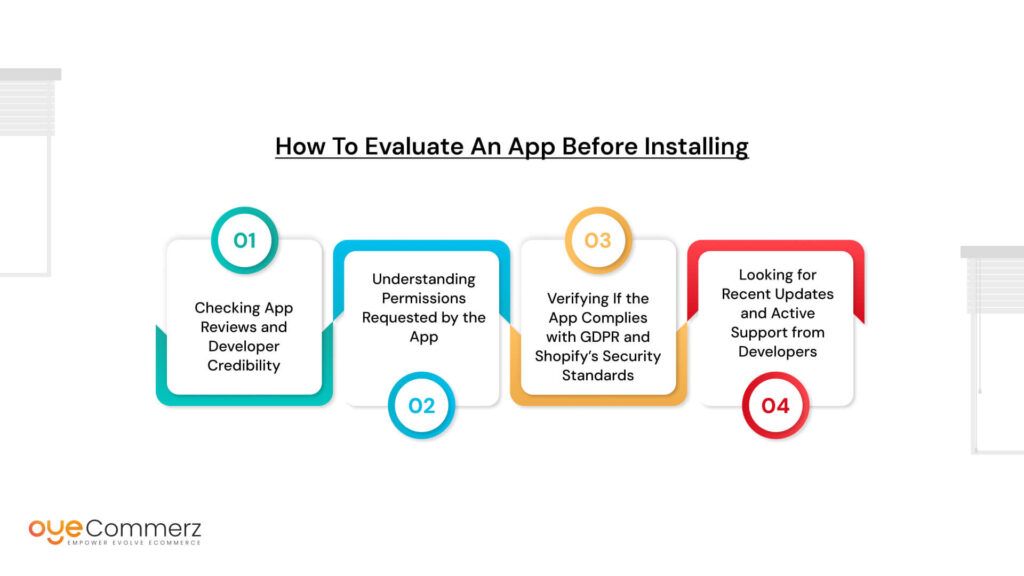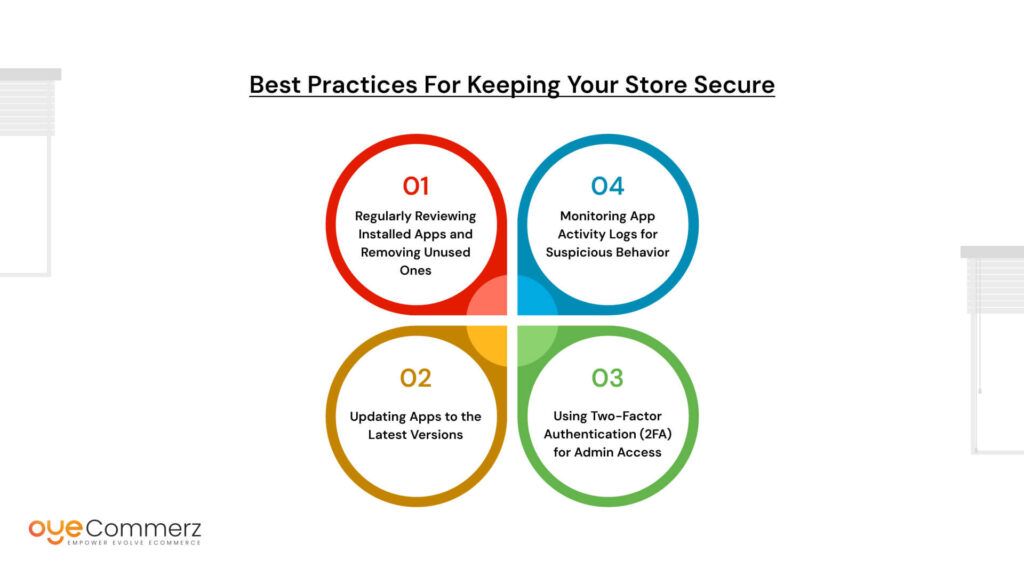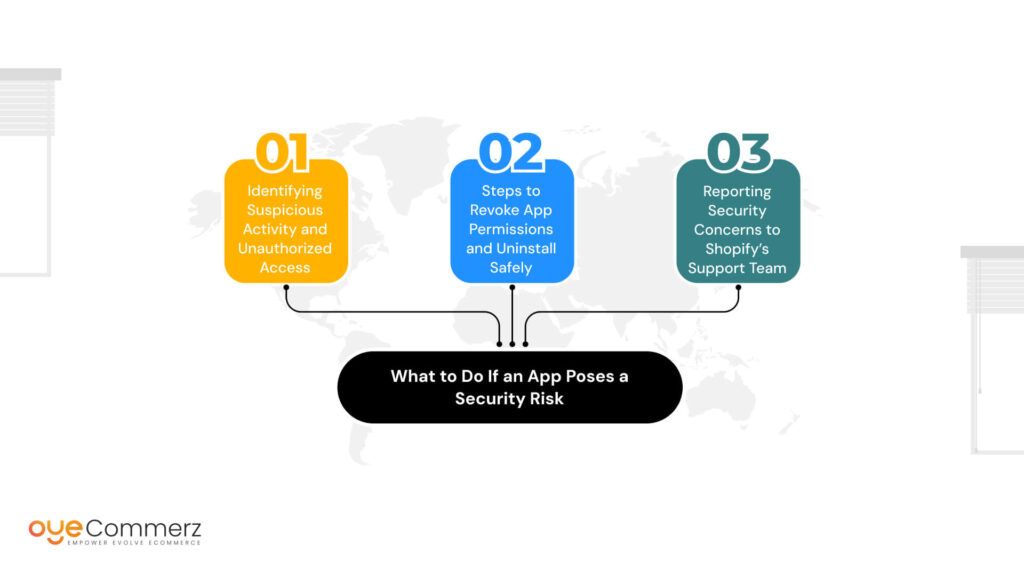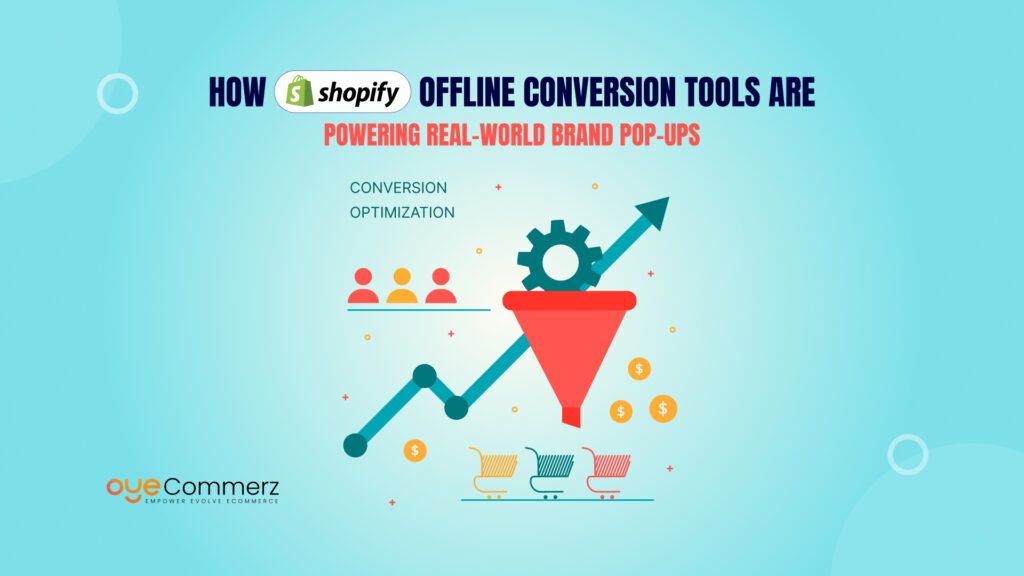Shopify’s App Store offers a wide range of third-party apps that enhance store functionality, streamline processes, and elevate customer experience. From marketing automation to advanced inventory management, these apps empower merchants to customize their Shopify stores to meet their unique needs. Additionally, businesses can opt for custom Shopify app development to create tailored solutions that perfectly fit their requirements.
However, with all these opportunities comes the risk of compromising your store’s security. Installing unverified or poorly secured apps can expose your business to data breaches, unauthorized access, and other security vulnerabilities. Some apps request unnecessary permissions that could put sensitive customer information and critical business data at risk.
In this guide, we’ll explore the importance of Shopify app security, highlight the common risks associated with third-party apps, and provide essential tips on how to protect your store, whether you’re choosing apps from the Shopify App Store or developing your own custom solutions.
Table of Contents
ToggleWhy Shopify App Security Matters
Shopify apps are essential for enhancing the functionality of online stores by automating tasks, managing inventory, and improving marketing. However, these apps often have direct access to sensitive store data, including customer information and transactions, which makes them a potential security risk. Understanding these risks is crucial to protecting customer data, maintaining store integrity, and ensuring compliance with data protection regulations.
How Apps Interact with Store Data, Customer Information, and Transactions
Third-party apps often require permissions to access sensitive data like customer names, emails, shipping details, and payment information to perform their functions. For instance, marketing apps may use customer data for campaigns, while payment apps handle transaction data that must comply with security standards like PCI-DSS. However, these permissions also expose your data to potential vulnerabilities if the app is compromised or improperly developed.
Potential Threats: Data Breaches, Unauthorized Access, and Malware Risks
- Data Breaches: A poorly developed app can lead to hackers gaining access to sensitive store data, resulting in significant breaches.
- Unauthorized Access: Some apps request more data than needed, potentially allowing malicious actors to access more information than necessary, such as customer databases or the store’s backend.
- Malware and Ransomware: Malicious apps can infect your store with malware, compromising data, locking you out, or even causing financial damage if ransomware is involved.
Real-World Examples of Security Issues Caused by Third-Party Apps
- 2019 Data Breach: A vulnerability in a popular Shopify app led to hackers accessing sensitive customer data. Shopify patched the issue, but the incident highlighted the risks posed by third-party apps.
- Compromised API Integrations: A third-party app’s insecure API integration with an email service led to unauthorized exposure of customer emails.
- Malicious Apps: Some apps, despite good reviews, contained hidden malware that stole data or performed fraudulent activities.
By understanding these risks, you can make more informed decisions about which apps to install and protect your store and customers from potential harm.
Key Security Risks of Shopify Apps
Shopify apps can enhance store functionality, but they also introduce security risks that may compromise your store’s data, customer privacy, and overall security. Here are the key risks:
Data Privacy Concerns
Apps often require access to sensitive customer data (e.g., emails, payment details). If an app mishandles this data or collects more than needed, it increases the risk of breaches and privacy violations, especially if data is shared with external servers. Lack of proper encryption and security practices can lead to data exposure, damaging your store’s reputation and violating data protection laws like GDPR.
Permission Overreach
Some apps request more access than they need. For example, an app designed for inventory management might ask for permission to access customer data or financial reports. Granting unnecessary permissions increases the chances of malicious actors exploiting them to steal data, alter information, or cause other harm.
Vulnerabilities & Exploits
Outdated or unpatched apps are prime targets for hackers. If an app isn’t regularly updated or secured, it may have flaws that allow unauthorized access, such as weak encryption or poor user authentication. These vulnerabilities can be exploited to steal sensitive information or cause other security breaches.
Third-Party Integrations
Many apps rely on third-party services or APIs. If these external services are insecure or not properly maintained, they can introduce hidden security flaws. Poorly secured API integrations or unvetted third-party services can lead to data leaks or unauthorized access, putting your store at risk.
By understanding these risks, you can take steps to choose secure apps and protect your store from potential threats.
Shopify App Security Measures for Apps
Shopify App Store Review Process and Approval Criteria
Shopify ensures each app goes through a thorough review before being published on the App Store. This review process involves examining the app’s code for potential vulnerabilities, security issues, and adherence to data privacy regulations like GDPR. Apps are also assessed for their impact on store performance, ensuring they won’t slow down or disrupt the functionality of your store. Shopify’s review team checks the app’s compliance with security best practices and evaluates its overall quality and reliability.
OAuth Authentication and Permission-Based Access Control
Shopify utilizes OAuth authentication to manage access to your store’s data. This industry-standard protocol ensures secure authorization, requiring apps to request specific permissions to access certain types of data. As a store owner, you have full control over what data the app can access and can revoke permissions at any time. By limiting an app’s access to only necessary data, Shopify reduces the risk of unauthorized access and potential breaches.
Shopify’s API Security Standards and Data Protection Policies
Shopify upholds strict API security standards, ensuring that all apps interacting with your store via the API follow secure authentication, encryption, and data protection policies. These standards are aligned with PCI-DSS (Payment Card Industry Data Security Standard) to ensure the security of sensitive payment and transaction data. Shopify’s API endpoints are secured with SSL encryption to protect data in transit, and the platform continually updates its security protocols to stay ahead of emerging threats.
App Data Storage and Encryption
Shopify requires that apps store data securely by implementing encryption both in transit and at rest. This ensures that any sensitive information, such as customer data, payment details, and store settings, is protected from unauthorized access, even if a security breach occurs. Apps are expected to use strong encryption algorithms to safeguard data stored on their servers, minimizing the risk of data leaks.
Regular Security Audits and Vulnerability Scanning
To maintain a high standard of security, Shopify regularly conducts security audits of the apps available in its App Store. These audits include automated vulnerability scanning and manual testing to identify any security flaws or weaknesses. If vulnerabilities are found, Shopify works with app developers to ensure they are fixed quickly, and affected merchants are notified.
Developer Accountability and Compliance
Shopify holds app developers accountable for the security of their apps by enforcing strict compliance with data protection laws, security guidelines, and best practices. Developers must provide transparency regarding how they handle customer data, including whether they store, share, or process it. Shopify also requires developers to implement proper user authentication and to follow secure coding practices to minimize the risk of vulnerabilities.
Security Incident Response and Support
In the event of a security breach, Shopify has a dedicated security team that works to quickly address the issue and mitigate any damage. Shopify provides support to merchants by investigating security incidents, notifying impacted parties, and offering guidance on how to secure their stores. Developers are also required to promptly notify Shopify if they discover any vulnerabilities or security issues within their apps.
User Reviews and Community Feedback
Shopify encourages users to leave reviews and feedback on apps they’ve installed. These reviews can provide valuable insights into an app’s performance, security, and reliability. Store owners are encouraged to consider the feedback of other users and look out for any potential security issues mentioned in reviews before installing an app.
Through these robust security measures, Shopify ensures that third-party apps meet high standards for performance, security, and data protection, helping store owners safeguard their business and customer information.
How to Evaluate an App Before Installing
Checking App Reviews and Developer Credibility
Before installing an app, read user reviews and ratings on the Shopify App Store. Look for feedback regarding security, reliability, and performance. Also, research the developer’s history and reputation to ensure they’re reputable and have a track record of providing secure and reliable apps.
Understanding Permissions Requested by the App
Pay close attention to the permissions the app requests. Ensure that it only asks for the necessary access to perform its intended function. Be wary of apps requesting excessive or unrelated permissions, as these could indicate potential security risks.
Verifying If the App Complies with GDPR and Shopify’s Security Standards
Ensure the app complies with data protection regulations, such as GDPR, if you’re operating in regions where these apply. Check for clear information on how the app handles customer data and whether it follows Shopify’s security standards for data encryption and protection.
Looking for Recent Updates and Active Support from Developers
An app that is regularly updated shows that the developer is actively maintaining it, addressing bugs, and improving security. Check if the app has recent updates and whether the developer offers responsive support in case of issues. An app with good support is more likely to resolve any security concerns quickly.
By evaluating these factors, you can ensure that the app you choose is secure, reliable, and compliant with necessary regulations.
Best Practices for Keeping Your Store Secure
Regularly Reviewing Installed Apps and Removing Unused Ones
Periodically audit the apps installed on your Shopify store. Remove any that are no longer in use or deemed unnecessary. This reduces the risk of security vulnerabilities from outdated or unused apps, minimizing potential entry points for cybercriminals.
Updating Apps to the Latest Versions
Ensure that all installed apps are up-to-date with the latest security patches and features. App developers frequently release updates to fix bugs, improve functionality, and address security vulnerabilities. Keeping your apps current helps protect your store from known threats.
Using Two-Factor Authentication (2FA) for Admin Access
Enable two-factor authentication (2FA) for all admin accounts on your Shopify store. This adds an extra layer of security by requiring users to verify their identity through a second method (e.g., a code sent to their phone), making it harder for unauthorized users to gain access to your store.
Monitoring App Activity Logs for Suspicious Behavior
Regularly check the activity logs for all installed apps. Monitoring these logs allows you to spot unusual or unauthorized actions, such as access to sensitive customer data or changes to product listings. Early detection of suspicious behavior can help prevent security breaches before they escalate.
By following these best practices, you can enhance the security of your Shopify store, protect sensitive data, and mitigate risks associated with third-party apps.
What to Do If an App Poses a Security Risk
Identifying Suspicious Activity and Unauthorized Access
If you notice unusual activity, such as unexpected changes to your product listings, unauthorized access to customer data, or unapproved transactions, these could be signs that an app is posing a security risk. Regularly monitor app activity logs and any notifications from Shopify regarding app behavior. Look for signs of data breaches, sudden changes in user permissions, or unexplainable system errors.
Steps to Revoke App Permissions and Uninstall Safely
If you suspect an app is compromising your store’s security:
- Revoke the app’s access immediately. Go to your Shopify admin dashboard, find the app in the “Apps” section, and disable or adjust its permissions.
- Uninstall the app by clicking on “Delete” in the app settings. Make sure to follow all steps to ensure the app’s access is completely removed from your store.
- If the app stores data on external servers, contact the developer to request that they delete any stored information to avoid further security risks.
Reporting Security Concerns to Shopify’s Support Team
If you believe an app is causing security issues, report it to Shopify’s support team immediately. Provide details of any suspicious activity, app permissions, and any steps you’ve taken to mitigate the risk. Shopify will investigate the issue and may take further action, including removing the app from the App Store or working with the developer to fix security flaws.
By taking swift action to revoke permissions, uninstall problematic apps, and notify Shopify, you can minimize the impact of a security risk and protect your store from further harm.
Secure Shopify App Alternatives
Choosing Apps from Well-Known, Reputable Developers
When selecting apps, prioritize those developed by well-established, trusted developers with a history of creating secure and reliable apps. Look for apps that have positive user reviews, frequent updates, and clear support channels. Reputable developers often follow best security practices and are proactive in addressing vulnerabilities.
Using Shopify’s Native Features Instead of Third-Party Apps When Possible
Shopify offers a variety of built-in features and tools that can help you manage your store’s functionality without needing third-party apps. Whenever possible, opt for these native features, as they are more tightly integrated with the Shopify platform and subject to its security standards. This can reduce the risk of vulnerabilities introduced by external apps.
Exploring Custom Shopify App Development for Tailored and Secure Solutions
If your store requires specific functionality that third-party apps can’t provide securely, consider developing a custom Shopify app tailored to your needs. Custom app development allows you to control the app’s design, functionality, and security measures, ensuring that it meets your specific requirements while reducing the security risks associated with off-the-shelf apps.
By exploring these alternatives, you can enhance your store’s security while still maintaining the functionality you need.
Ensure Your Shopify Store’s Security with Oyecommerz
Are you ready to take your Shopify store to the next level with secure, custom-built apps? At Oyecommerz, we specialize in developing tailor-made Shopify solutions that prioritize security, functionality, and performance. Contact us today to get started on a seamless, secure app experience for your store!
Ready to Migrate to Shopify ? Let Us Help You Make the Switch!
Conclusion
Shopify apps are essential for enhancing your store’s functionality, but ensuring their security is equally important. Vulnerabilities in third-party apps can expose your store to risks like data breaches and unauthorized access. To protect your store, it’s crucial to research app developers, review permissions, and verify compliance with security standards before installation. For added security, consider custom Shopify app development, which allows you to build tailored solutions that meet your exact needs while maintaining tight security controls. Regularly updating apps, removing unused ones, and using two-factor authentication can further protect your store. By staying proactive and informed, you can safeguard your business and customer data, providing a secure shopping experience.

